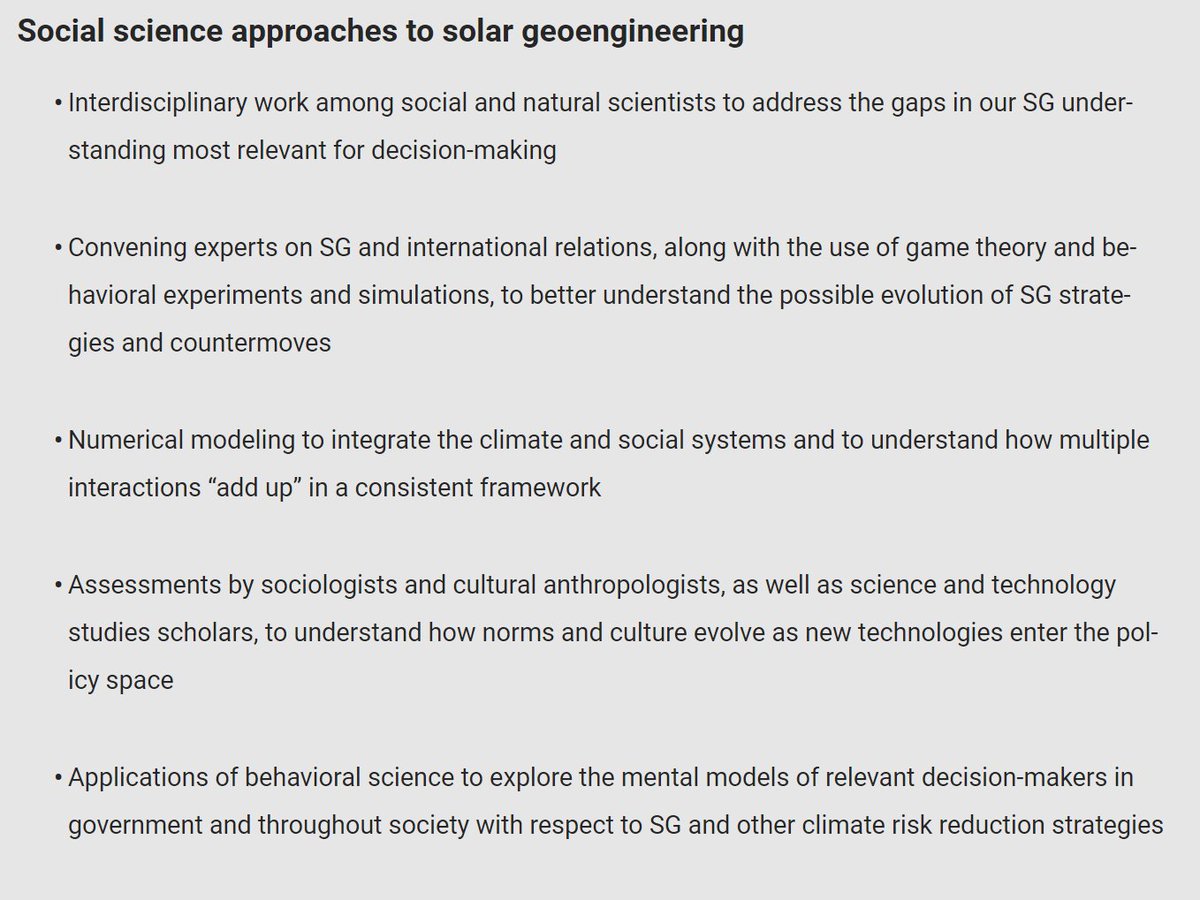
1/ Why not commercialize solar geoengineering?
Motivated by silly commercial stuff that bubbled up this year, this thread provides a few reasons why commercializing solar geoengineering is a terrible idea.
Bouquets, brickbats, or additional arguments most welcome.
Motivated by silly commercial stuff that bubbled up this year, this thread provides a few reasons why commercializing solar geoengineering is a terrible idea.
Bouquets, brickbats, or additional arguments most welcome.
2/ An example that just got some ink. More examples near end-of-thread. technologyreview.com/2022/12/24/106…
3/ Reason 1: SRM's defining challenge is trust. There is no reasonable doubt that commercial-off-the-shelf tech could be adapted to cool the planet at a tiny cost using strat aerosols. Science suggests benefits could be far larger than risks.
4/ But the research community is thin and distrust is widespread. Trust must be earned with a far broader, more inclusive research effort, one that makes systematic efforts to look for errors and uncertainty.
5/ Startup ventures may provide big social benefit by driving down costs. Yet startups feed on private knowledge and IP and they have deep incentives to oversell, features that reduce trust.
6/ Weak trust is OK when the performance of the product--heat pump or solar cell--is easy to check. And when one can opt out by choosing not to buy. Let competition run free in these markets.
7/ Trust is a barrier for systems with uncertain long-term consequences, particularly when people cannot op-out. We don't want capitalist free-for-all in education or health care.
8/ SRM is a preeminent example. We don't need capitalism making it cheaper. We need creative social structures developing dispersed understanding that can support decision-making and gain trust.
10/ Reason 2: Suppose you have a business that cools the planet. Global cooling is what econ's call a non-excludable good. Why pay if one can enjoy climate protection for free? Threaten to stop the cooling? Now we are in Dr Evil's territory. Governments should and will grab hold.
11/ Reason 3: Suppose you could sell cooling benefits in carbon markets. The price would be well under 1 $/ton. The result is you flood the market encouraging emissions and/or you do so much cooling you freeze the planet.
12/ Of course, research on SRM or (if it happens) implementation will need markets to supply services from stratospheric sensors to aircraft. No problem.
13/ What's crucial is that control of methods, materials, and scientific results be widely dispersed among universities, civil society, government labs, not-for-profits, and ventures. Trust no single institution.
14/ Should we worry about geoengineering-for-profit? There is interest. I have had three semi-serious calls with VC's who wanted to look for opportunities. (did my best to dissuade them.) And there are a few tiny ventures: e.g., Make Sunsets and Ethos Space.
15/ Worry is natural, given the chaotic profit-driven musky mess that is Twitter. But the venture effort in SRM is tiny. And my hunch is that it will stay that way due to principled opposition and a lack of a sensible business model.
16/ For more of my thinking on this topic see this post keith.seas.harvard.edu/blog/why-i-am-… or this @nyt op-ed nytimes.com/2021/10/01/opi… 

17/ Thanks for your attention if you got this far. Comments? Counter-arguments? Further reading?
• • •
Missing some Tweet in this thread? You can try to
force a refresh











